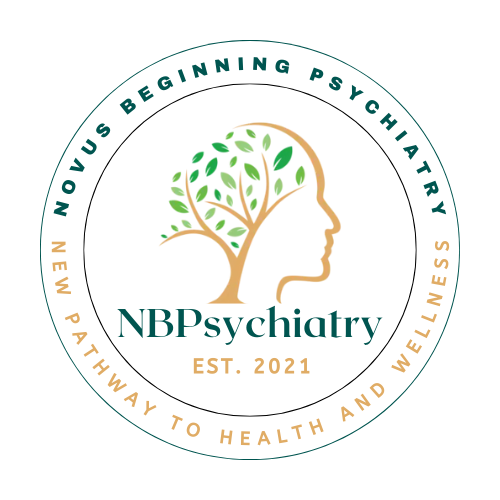Substance Use Disorder
A Substance Use Disorder (SUD) is a psychological health condition in which an individual’s use of a substance (such as alcohol, drugs, or medication) leads to clinically significant impairment or distress. It results in negative consequences for the individual, such as difficulty fulfilling major role obligations, recurrent use in hazardous situations, and social or interpersonal problems that persist or happen repeatedly due to the effects of a particular substance.
SUDs are classified into mild, moderate, and even severe, depending on the diagnostic criteria met by the individual. To be diagnosed with SUD, an individual must meet at least two of the 11 criteria outlined in the Diagnostic and Statistical Manual of Mental Disorders. The criteria for Substance Use Disorder include:
- The individual takes the substance in larger amounts or over a longer period than intended.
- There is a persistent desire or unsuccessful efforts to cut down or control substance use.
- A great deal of time is spent in activities to obtain the substance, use the substance, or recover from its effects.
- Craving, or a strong desire or urge to use the substance.
- Recurrent substance use resulting in a failure to fulfill major role obligations at work, school, or home.
- Continued substance use despite having persistent or recurrent social or interpersonal problems caused by the effects of the substance.
- Important social, occupational, or recreational activities are given up or reduced because of substance use.
- Substance use continues despite knowledge of having a persistent or recurrent physical or psychological problem that is likely to have been caused or exacerbated by the substance.
- Tolerance, as defined by either a need to use increased amounts of the substance to achieve intoxication, or a markedly diminished effect with continued use of the same amount of the substance
- Withdrawal, as defined by either the characteristic withdrawal syndrome for that substance or the same (or a closely related) substance, is taken to relieve or avoid withdrawal symptoms.
Symptoms of Substance Use Disorder
- May continue to use despite it having negative consequences, such as health problems, financial problems, or relationship problems.
- May experience withdrawal when they stop using the substance, for instance, nausea, tremors, insomnia, or anxiety
- May neglect their responsibilities at home, work, or school.
- May also have difficulty maintaining relationships or keeping a job.
- May experience changes in their sleep patterns, eating habits, or grooming routines.
- May experience changes in their physical appearance, such as weight loss or gain, bloodshot eyes, or changes in skin color.
- May also experience tremors, slurred speech, or impaired coordination.
- May have legal problems related to their substance use, such as arrests for driving under the influence of drugs.
- May become more secretive, isolated, or moody.
How to diagnose substance abuse?
The assessment process for Substance Use Disorders (SUDs) involves a comprehensive evaluation to understand the individual’s physical, psychological, and behavioral condition. It typically begins with a medical exam, including a physical assessment and laboratory tests, to evaluate overall health and rule out medical conditions that may contribute to substance use. A psychological evaluation follows to assess mental health status and identify any co-occurring disorders, such as anxiety or depression. A detailed interview is conducted to gather information about the person’s substance use history, including the types of substances used, frequency, duration, and any resulting negative consequences. Standardized questionnaires or self-report tools may also be administered to measure the severity of the disorder and the level of functional impairment. Additionally, behavioral observation helps clinicians identify visible signs of substance use or withdrawal symptoms. Finally, a review of medical, laboratory, and legal records provides further insight into the individual’s substance use patterns and associated outcomes, ensuring a thorough and accurate diagnosis.
How Is Substance Use Disorder Treated?
Treatment for Substance Use Disorders (SUDs) often involves a combination of medical, psychological, and supportive approaches to address both the physical and emotional aspects of addiction. Medications such as methadone, buprenorphine, and naltrexone are commonly used to manage withdrawal symptoms, reduce cravings, and lower the risk of relapse. Behavioral therapies, including cognitive-behavioral therapy (CBT), motivational interviewing (MI), and contingency management (CM), help individuals explore the underlying causes of substance use and develop healthier coping and decision-making strategies. Support groups like Alcoholics Anonymous (AA) and Narcotics Anonymous (NA) offer a strong sense of community, emotional support, and practical advice from peers with similar experiences. For more intensive care, residential treatment programs provide a structured environment where individuals can safely detox and receive comprehensive therapy, while outpatient programs allow patients to continue their daily lives while attending regular counseling sessions. Medically Assisted Treatment (MAT), which combines medication with behavioral therapy, has proven especially effective for managing opioid addiction and can be implemented in both inpatient and outpatient settings. Additionally, many treatment centers incorporate holistic therapies such as yoga, meditation, and acupuncture to promote overall well-being and enhance recovery outcomes.



